Receiving a job rejection can feel disheartening, but it also presents an opportunity for growth and learning. Crafting a thoughtful response not only showcases your professionalism but also keeps the door open for future opportunities with that company. A well-written reply can strengthen your network and leave a positive impression, highlighting your resilience. Interested in how to create the perfect response to a job rejection? Let's dive deeper!

Gratitude and appreciation
Receiving a job rejection can be an unexpected emotional experience, especially after putting forth considerable effort. Expressing gratitude in a response can foster positive relationships and openness for future opportunities. Acknowledging the time spent in the interview process at the company, such as the comprehensive discussions with the hiring team and the valuable insights shared about the organization, is crucial. Also, mentioning the interest in the company's mission and values, such as their commitment to innovation in technology or community engagement, can highlight shared beliefs. Asking for constructive feedback may enhance future applications, providing opportunities for professional growth. Additionally, expressing a desire to stay connected, possibly through networking platforms like LinkedIn, can keep doors open for potential future roles.
Request for feedback
Receiving a job rejection can be disheartening, especially after investing time in the application and interview process. It is beneficial to seek constructive feedback to improve future applications. Crafting a polite, professional email can demonstrate continued interest in the position and the company, while also highlighting the candidate's willingness to learn and grow. Expressing gratitude for the opportunity to interview and respectfully requesting specific insights about performance can lead to valuable information that enhances future job prospects. This feedback can address both strengths and areas for improvement, enabling the candidate to refine their approach and increase their chances of success in the competitive job market.
Expression of continued interest
Receiving a job rejection can often be disheartening, yet it can open new avenues for professional growth and networking. Acknowledging the decision, you can express gratitude towards the hiring team for the opportunity to interview, highlighting specific aspects of the process that resonated with you, such as engaging conversations with the interviewer or insights gained about the company's innovative projects. Reinforcing your enthusiasm for the organization, reiterate your interest by mentioning potential future opportunities that align with your skills in areas like project management or software development. Maintaining a positive tone, convey your desire to stay connected for any upcoming roles or additional projects, exemplifying your commitment to being a part of their dynamic team.
Networking opportunity mention
Receiving a job rejection from a renowned company, such as Google, can be disheartening, especially after multiple rounds of interviews. Candidates often invest significant time and effort, preparing for assessments and demonstrating their skills in competitive environments. Maintaining a professional demeanor is crucial. Expressing gratitude for the opportunity strengthens connections with hiring managers. It's beneficial to ask for feedback on the interview performance, offering insights for future improvement. Additionally, mentioning interest in networking opportunities within the company's professional events or community can open doors for future collaborations or job openings, fostering relationships that may prove advantageous down the line.
Professional closure and future connection
Receiving a job rejection can inspire a desire for professional closure and future networking opportunities. Maintaining a positive tone is crucial, emphasizing gratitude for the interview opportunity. Acknowledgment of the insights gained during the process showcases professional growth. Expressing continued interest in the company, typically located in thriving business hubs like New York City or San Francisco, leaves the door open for potential future roles. Politeness in communication, utilizing language that fosters goodwill, can encourage continued engagement with the hiring team. Offering to stay in touch highlights the appreciation for their time and consideration, reinforcing a lasting professional relationship.
Letter Template For Responding To Job Rejection Samples
Letter template of gratitude for the experience following a job rejection
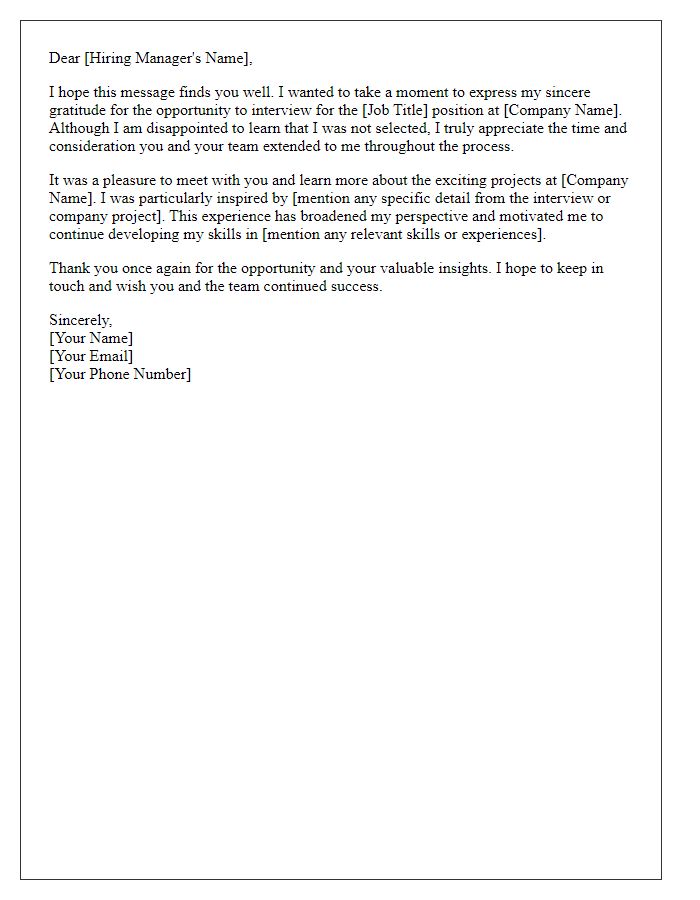
Letter template of expressing continued interest in the company after rejection
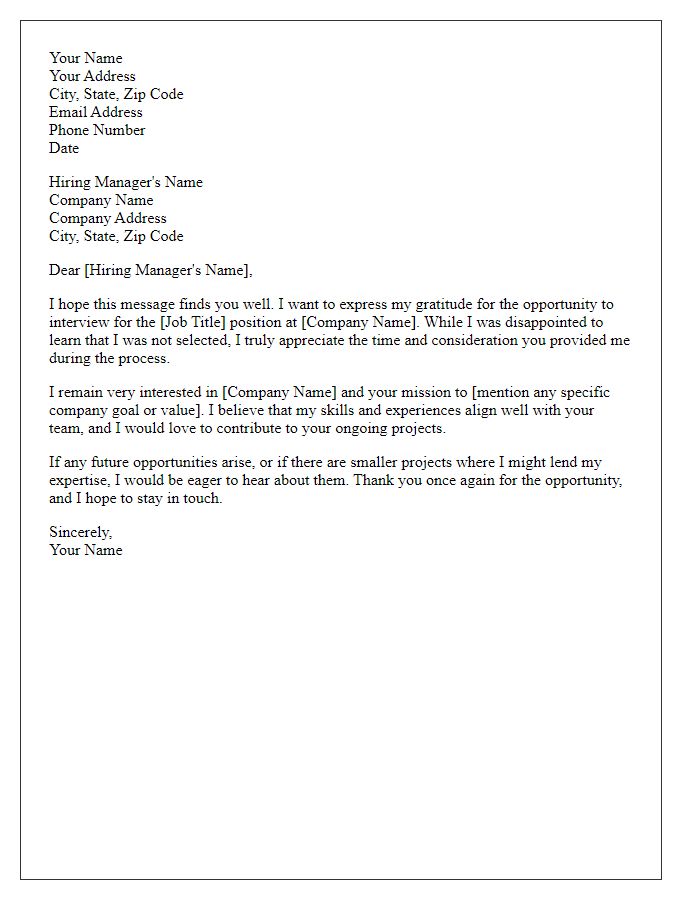
Letter template of showing motivation for self-improvement after rejection
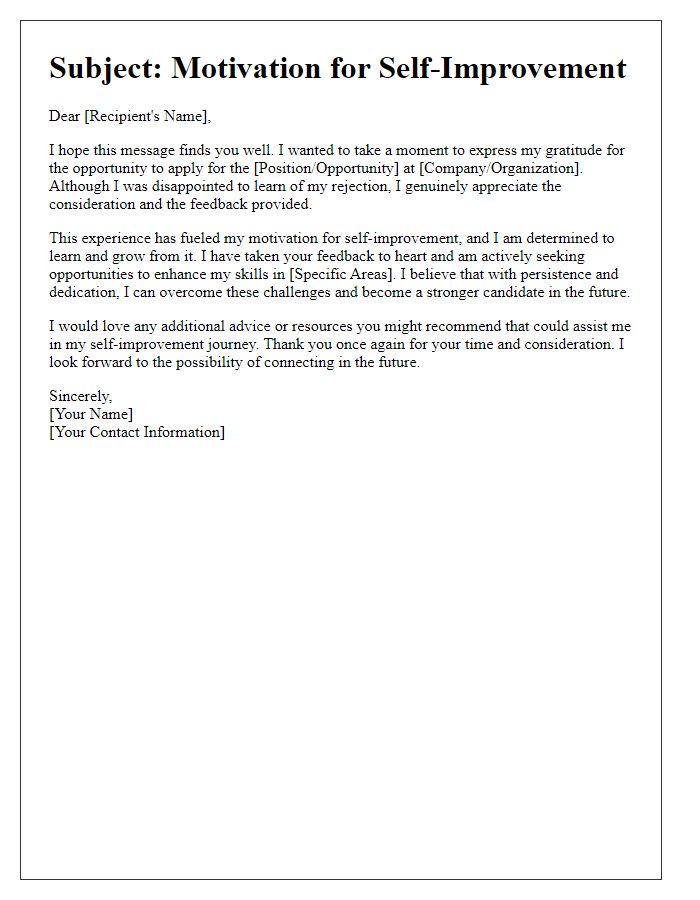

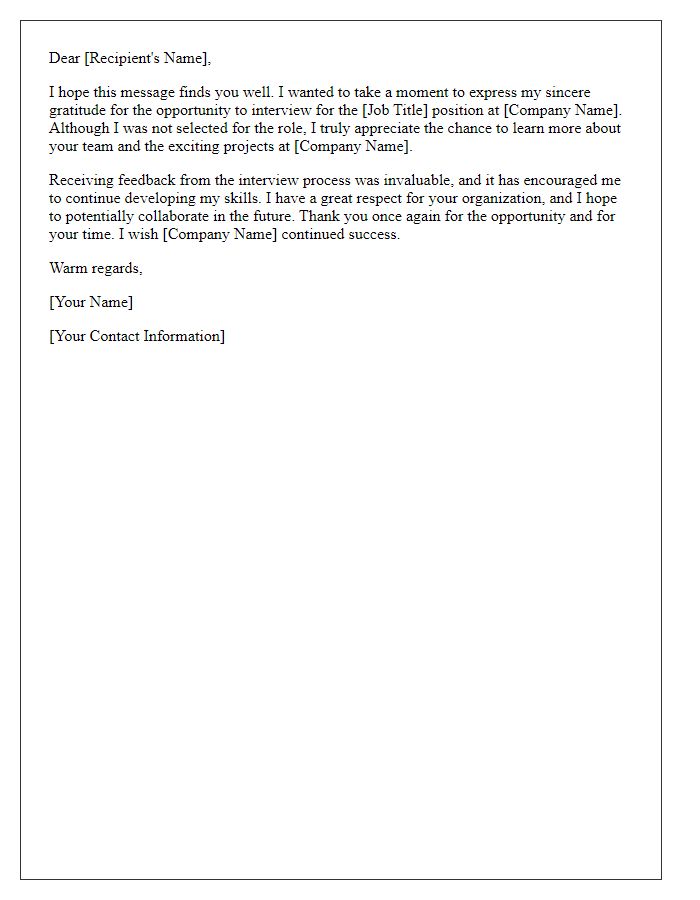
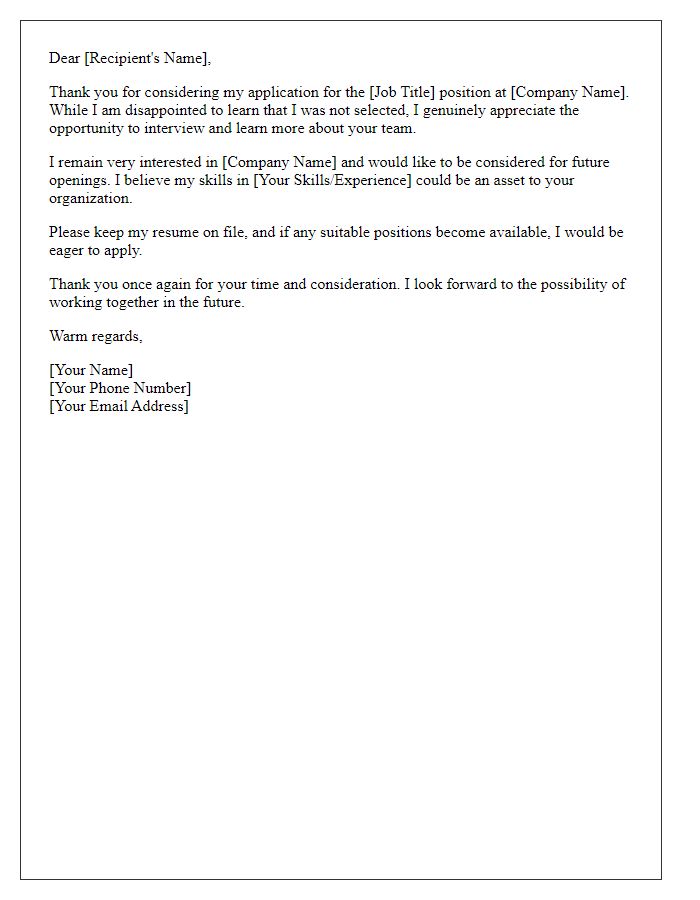
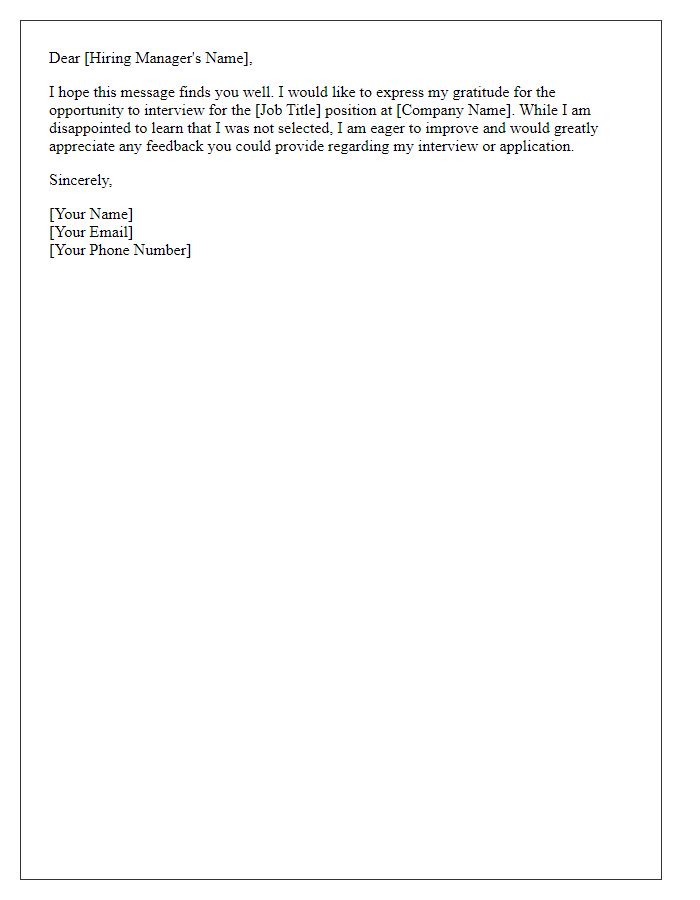
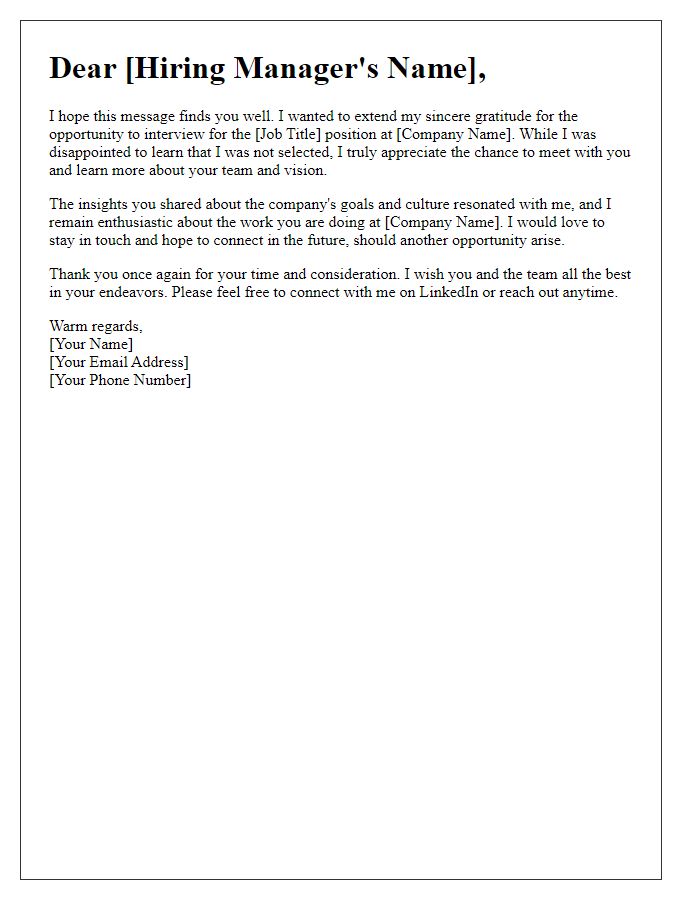
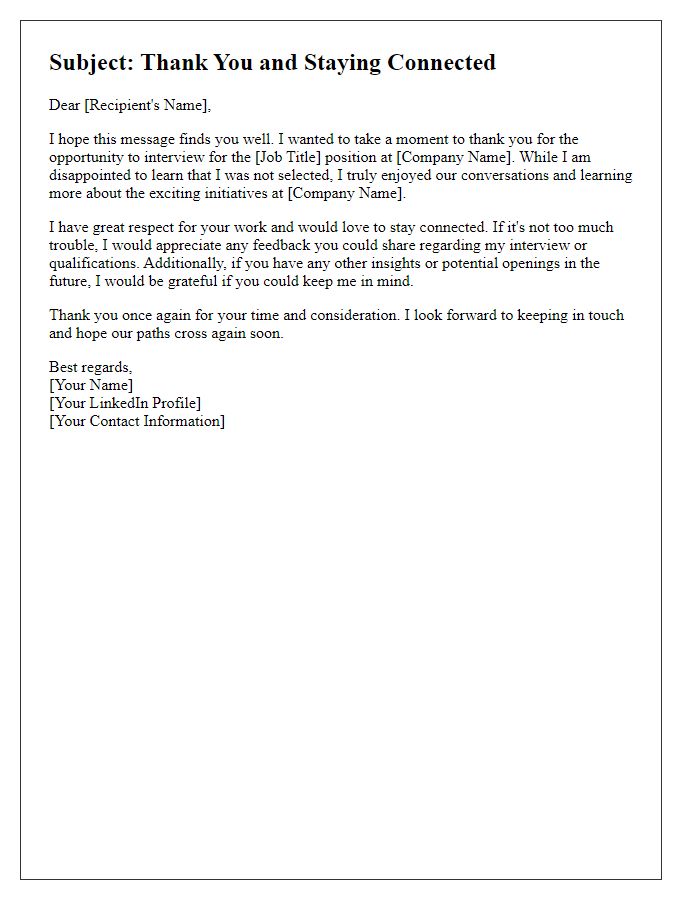
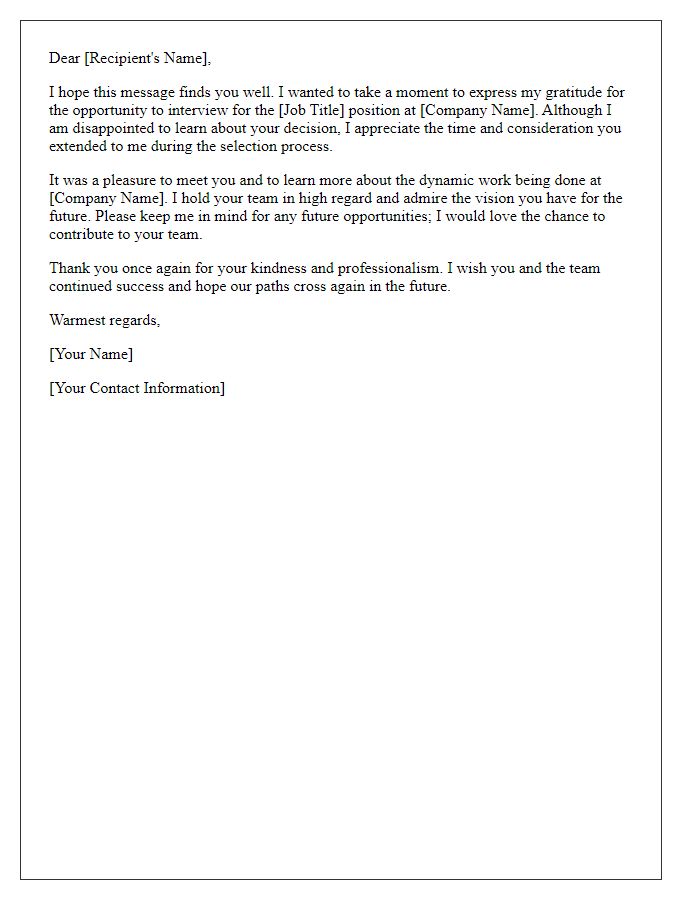
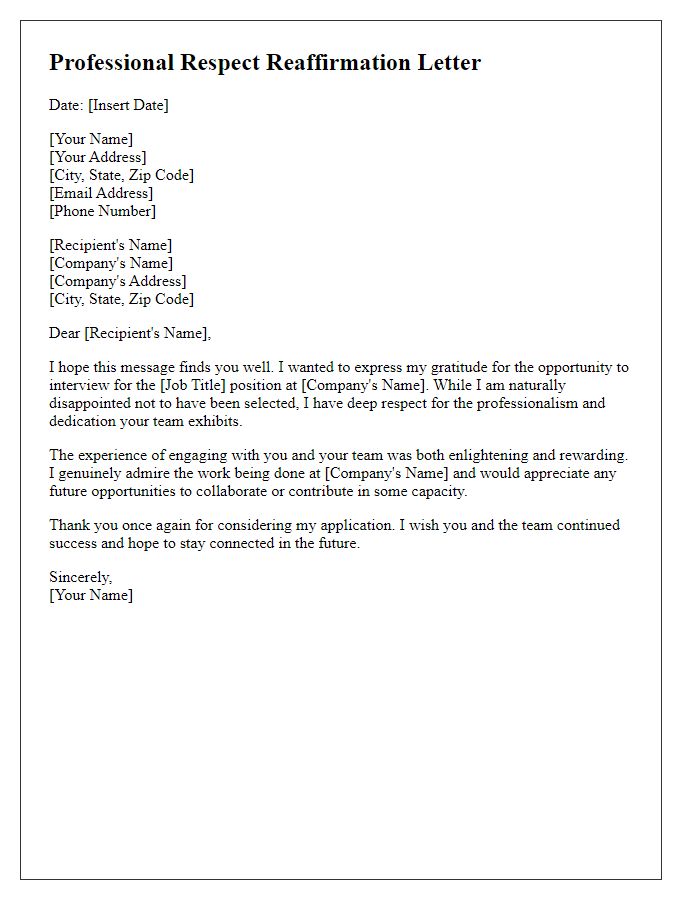


Comments